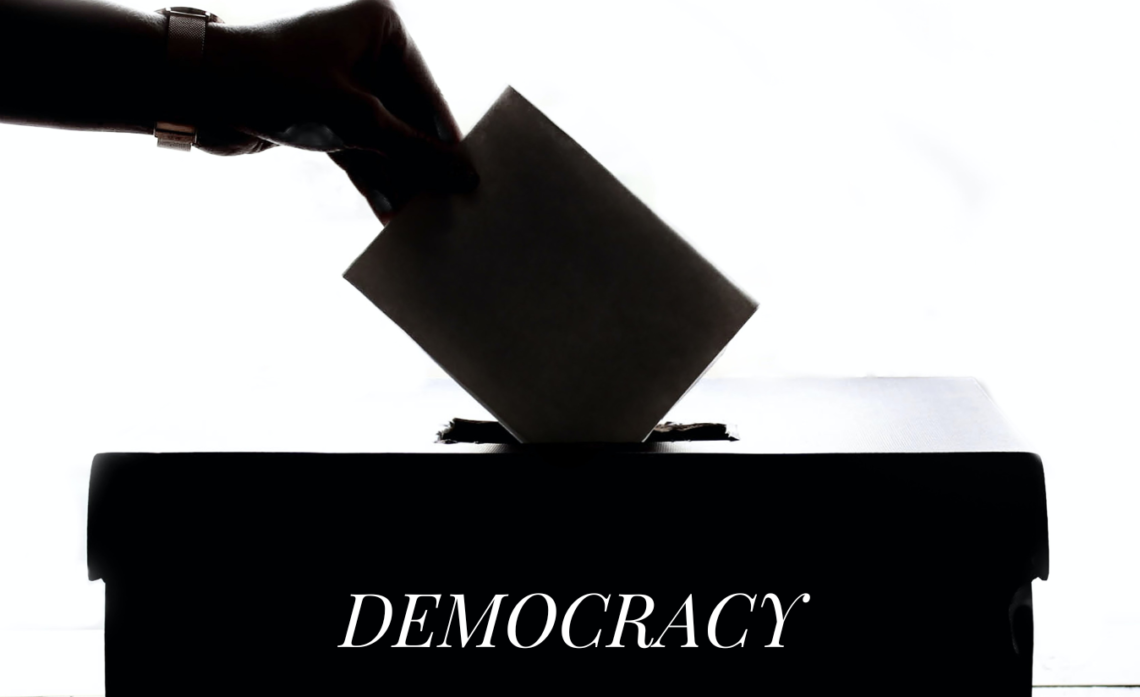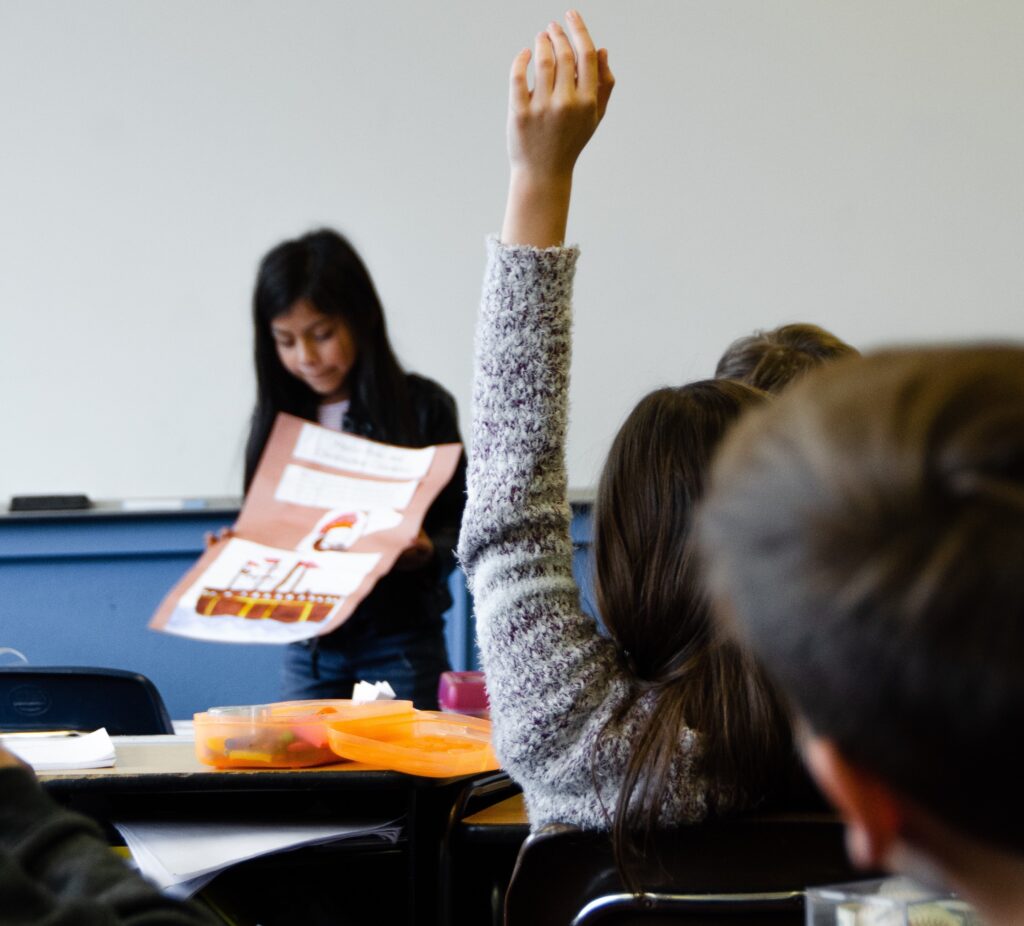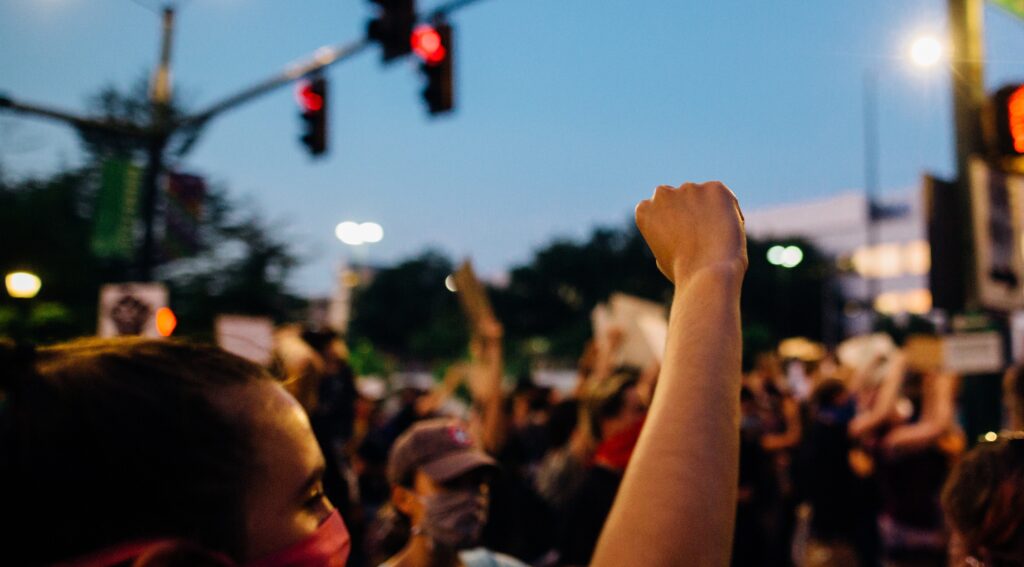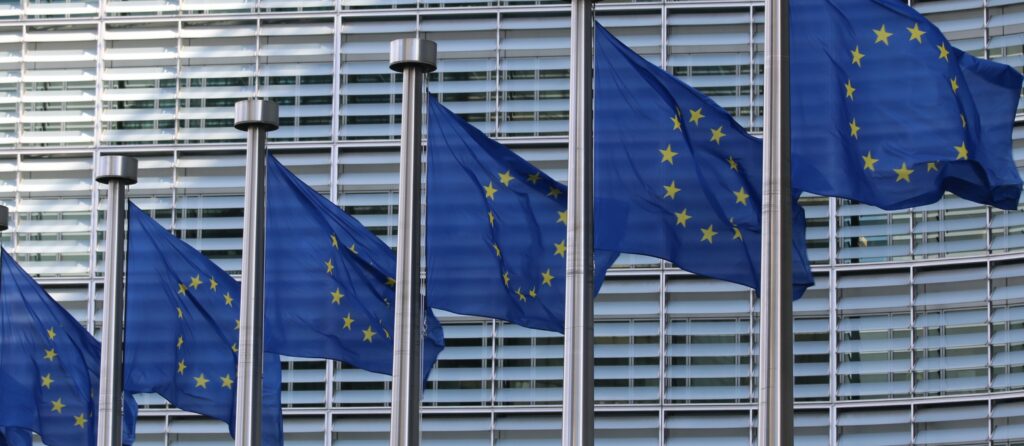
Western democracies: a bout of flu or terminally ill?
Lisa Fraser gives a thorough examination to the body politic. Read on for the results!
Around the fifth century BC, men of a certain class living in Athens, and above a certain age, were expected to take part in the local government of the city. This is how some history textbooks trace back the invention of modern democracy.
Flash forward: in the Europe of the Middle Ages, kings ruled over lords (and relied on them to wage wars); lords protected (and exploited) serfs and farmers in exchange for taxes and agricultural goods. Relations were defined in terms of dominance, mutual protection and service. There were neither votes nor debates.
History ebbs and flows. Modern liberal democracy, sometimes also called electoral democracy or Western democracy, is not a universal truth, valid across time and space. It can exist or it can cease to exist.
Most Adamah’s readers live in what we call Western democracies. The name emerged from traditional democratic systems in Europe, but the modern concept is not linked to geography, as it includes countries like Australia, Brazil and Canada.
The concept mainly refers to a way of governing. It means that voting is granted to a vast swathe of society, regardless of sex, ethnicity, religious beliefs and wealth. It is granted from the age of ‘maturity’ (usually somewhere between 16-21) until death.
To count as a liberal democracy, elections should be free, allowing most citizens to run for public office. Once elected, leaders should represent the majority of the people, while trying to protect minorities from tyranny and oppression. Parliaments and elected bodies should reflect the will of the people. The executive power should be counterbalanced by laws, set in writing, publicly accessible and understandable.
Following the Western democratic ‘model’, the judiciary should be independent and oversee the executive. Executive and judiciary decisions can be appealed. Individuals can challenge what they see as unfair rules, and seek reparation if their rights are violated.
Freedom of speech allows individuals and organisations to share their views of the world and of the government, and to offer alternative options.

The last component of so-called Western democracies is the right to private property – to own goods and wealth.
These democracies recognise and try to uphold the Four Freedoms: the freedom of speech and of worship; and the freedom from want and fear. This is the framework – at least in theory – into which most of us were born.
Yet, discontent seems to be growing across these democracies. In the latest global survey by Pew Research in 2019, 51% of the people surveyed across 27 countries said they were not satisfied with the way democracy was working in their country.
In parallel, we’ve seen the emergence of ‘The Age of the Strongman’ (a term coined by the journalist Gideon Rachman). This phenomenon has been observed in Turkey, Russia, Brazil, China and the Philippines, for instance.
In the early 20th century, the Ottoman Empire was called the Sick Man of Europe, before its final (and irreversible) collapse. A century later, has the concept of Western democracy became the new Sick Man?
In some ways modern democracies have become victims of their own success. They were built on the promise they would represent the majority while taking care of the vulnerable, and offer a level of fairness and safety.
Yet, this initial mission has grown so much that the State’s reach and responsibilities seem almost boundless … and worryingly so.
Healthcare systems were initially put in place to save lives, like the British NHS, or the French Sécurité Sociale. Nowadays, they’re funding diets and sports classes.
Schools were established to teach literacy and bring children out of destitution. Nowadays, debates are raging about which book must or cannot be taught in classrooms.

Naturally, the exponential growth of the modern State’s various missions requires more funding. Some detractors have denounced the disproportionate increase in taxes. They’ve also criticised the costs of running these services – call it red tape, bureaucracy or simple waste, depending on how vehemently you feel about it. Opponents have argued that taxpayers’ money is used to pay civil servants and structures, rather than to support citizens.
It is difficult to find relevant data to support or contradict all of this. Yet, the feeling that States have grown exponentially should be acknowledged, whether or not that is considered a good or a bad thing.
Some groups, especially in the US, have publicly called for the Federal Government to stay away from what they see as the private sphere (such as healthcare, sexual morality and education). These complaints originate in the issue of legitimacy: how can I consent to pay taxes if I disagree with the mission of the State that is above me?
Counter-balancing forces like the media, which once tried to raise the level of public debate, have often undermined it. The politicisation of public platforms (print, online, audio or TV) makes it harder to access dispassionate facts and to build our own understanding of the world. The media is becoming ever more politicised and commercialised rather than a force to bring politics and society to account.
In the 90s, the rise of market research and data analytics firms introduced a new layer of complexity to the system: polls! Surveys have become ever more important in influencing government decisions, and even elections. Political scientists and political leaders know the methodological limits: margins of errors, response biases, nonresponse biases, false correlation, influence on voters and decision-makers… Yet, this business is thriving, and keeps shaping public debates, with little oversight.
When media opinion and surveys are kings, I can’t help thinking about General De Gaulle: he led a war relying solely on his skills, experience and solid moral compass. And he led his country to victory!
Modern day politicians are under extreme pressure: media and public expectation to react quickly to events encourages knee-jerk reactions. The busyness of the present moment makes it harder to dedicate time to a long-term strategy.
Here too, liberal democracies are victims of their success: they’ve facilitated leadership change as a way to increase accountability. Yet, it has incentivised leaders to focus on winning elections, rather than on conceiving solutions to longer-term issues. It also encourages the call for ‘heads to roll’ whenever anything major goes wrong.
Strategies that are essential to society, but which will only bear fruits after some decades (such as pensions), become less urgent than the next electoral deadline… and get constantly postponed.
It has been said that the difference between a statesman and a politician is that the statesman plans for the next generation while the politician plans for the next election.
The above-mentioned struggles have led (in part) to a decline in turnout, even at major elections. In 2021, researchers at the University of Essex and University of Montreal studied 116 democratic countries from the 1960s until the 2010. They found a global decline, from 77% of citizens typically voting in national legislative and presidential elections, to 67%.
The gap between rulers and citizens seems to be even bigger among young people – i.e., the next generation of citizens. A European Commission survey across 14 countries, called MYPLACE, found that almost one young person out of two said politicians were ‘out of touch’, ‘privileged’, and did ‘not listen to people like us’.

The result partly reflects how politics has changed over the last decades. Most political parties were initially funded to represent certain sectors of the population. Christian Democrats represented Christian values; Nordic agrarian parties historically represented farmers in countries like Sweden, Denmark, and Finland; the UK Labour Party represented working class families, and so on …
Over time, Western societies became more complex, with the decline of traditional industries, the emergence of service economies, and a drop in religious practice. Sometimes, these changes tore political parties away from their historical roots and raisons d’etre.
Also, politics became more often a career choice, rather than a vocation to improve society. For instance, University College London’s Dr Tom O’Grady found that in the 1920s, 70% of the UK’s Labour MPs came from working-class backgrounds. This figure fell to 8% in the mid-80s.
Legitimate factors contributed to this shift, such as the cost of running an independent campaign; electoral rules biassed in favour of established political parties; and the need to professionalise politics to deal with an increasingly complex world.
However, this evolution sometimes led to a feeling of disconnection between the elite and the people.
The sense of not being heard has surely influenced voters in recent elections in several Western democracies. For example, Donald Trump’s ability to appeal to the voters in the Rust Belt (the Northern part of the US suffering from industrial decline) helped him win the presidential race in 2016.
Globalisation has also accelerated the disconnect between the people and their elected leaders. While the globalisation of supply chains and the integration of economies was seen as a source of infinite progress for a few decades, a malaise has started spreading in recent decades.
Some categories of the population felt they were not receiving the share of the wealth created, like the US Rust Belt, the former mining areas in the North of France, or the UK’s West Midlands. Resentment grew against the traditional system, which was seen as not delivering its promises.
While the growing divide between the elite and the people is worrying, many Western democracies also face a growing internal divide between various groups, ethnicities, religions, or other belief systems. The dialogue within society has become alarmingly heated in some countries.
Boomers versus Millennials, LGBTQ+, Black Live Matters, #metoo, Extinction Rebellion: opinions are becoming more defining for individuals and foster a sense of belonging.
Identification with a political party is being replaced by identification with a cultural ‘tribe’.
The values all these groups claim to espouse (minorities’ rights, greater inclusion) could build a more equal society. However, when belonging leads to excluding, or opposing, others, it becomes a risk for the community as a whole.
States were originally created to be governed by political parties, rather than informal groups of citizens. Modern societies are not structured in a way that promotes dialogue between these emerging identities.
The lack of appropriate structures to represent emerging trends in society have allowed pressure to grow on national governments, both from above and from below.
Over the last decades, some countries have faced the resurgence of regional identities. Catalonia in Spain, Corsica in France, Quebec in Canada or Scotland in the UK, have raised their voices, asking for more political power – or even, the right to form an independent State. They rally communities around factors like history, culture and language.

Nostalgia can also be a reason for the rise of regionalism. When times become more anxiety-provoking, communities can be tempted to look back to what they see as their golden era, before they were – so the idea goes – swallowed up by a ruling class which does not represent them.
Subsidiarity (the idea that decisions should be made at the lowest organisational level, where possible) has seen something of a revival in the last couple of decades of the 20th century, after a push from EU Member States to enshrine the principle in the Treaty on European Union (TEU), signed in 1992. However, it was also a core principle of Christian churches from early ages – rooted in the works of the 13th century Catholic philosopher Thomas Aquinas.
No wonder that modern States have been challenged from below when they tried to expand beyond their initial remit.
At the same time, States are also under increased pressure from supranational institutions. This is specifically relevant to modern democracies, as most of them chose freely to be involved in these institutions. But the risk is that this free choice might spin out of control, and deprive the member states of some of their historical prerogatives.
Over the last few decades, worldwide problems have emerged which are beyond an individual State’s control, like global warming, mass migration, Covid or food security. States have joined forces to respond to these vital threats, and created global institutions like the United Nations, the World Trade Organisations, or more recently, the UN Climate Change Conferences (COP).
These bodies are made of States’ representatives – a second degree of representation, as opposed to direct democracy. While these institutions are necessary to pool resources and ideas, they also challenge core principles like representation, State sovereignty, and direct democratic control.
This explains why civil society has sometimes felt left out and asked to have a voice in the debate. Some of us remember the protests around the 27th G8 summit in Genoa (a gathering of eight influential States), where 200,000 demonstrators gathered and the events ended in urban violence.
Some international organisations have also been opposed by smaller States, who at times felt powerless in front of these big supranational institutions.
Under the principle of ‘conditionality’, organisations grant funding and technical support only if the receiving State demonstrates certain legal or society changes. It can be a powerful lever to boost equality and women’s rights, for instance. However, some democratically elected governments felt that part of their sovereignty was being challenged – like Poland and Hungary when they clashed, mostly around values issues, with the European Union.

The art world has been good at sensing States’ weaknesses, and has drawn inspiration from this subtle change. Recently, we’ve seen a number of works depicting post-democratic worlds – from the North American Districts in Hunger Games, to the brutal gang war in Mad Max. More often than not, these imaginary post-States worlds are depicted as more violent and unfair than liberal democracies.
But fundamentally there is good news to celebrate: modern Western democracies have successfully built some order over the last century. These areas are overall safer and more peaceful, for a majority of citizens. The constant state of warfare between local tribes that characterised the Middle Ages has been largely brought under control – or at least, any breach of peace has sparked outrage and international reactions.
Power changes happen through elections, rather than through bloody military coups. Schools educate citizens to peace, and there is little opposition to that. The core values that led to the creation of these political systems remain broadly supported: fairness; representation; duty of care; justice.
Democracies have their weaknesses, but we value their effort to care for us when we are the most vulnerable – such as old age, disability, pregnancy, or when affected by unemployment.
We also broadly support States’ ability to deal with our increasingly complex world. Finance, regulatory standards, climate change … individuals wouldn’t realistically be able to navigate these complex waters without State involvement. States manage to regulate these issues (certainly better than any alternative) and create frameworks to tame excesses (or try to). Day-to-day, elected leaders deal with fiendishly complex problems, and report at certain milestone moments to ask for a steer and confirm the direction of travel.
Voter participation in elections is decreasing but public interest in the Common Good is not drying up. The number of public protests, online debates and other grassroots movements demonstrate that citizens want to get involved more than ever. They just use new channels to do so.
Even if we feel powerless sometimes, groups and public pressure can influence the direction of a country. For instance, environmental care is now at the centre of discussions and law-making processes in many countries – what progress we’ve made since the 1970s, when the phenomenon was first discovered!
This is the fruit of the core values that Western democracies nurture: freedom of speech, freedom of participation, right to vote.
It is sad that some groups still don’t feel heard and respected as they should. Yet, collectively, we have moved away from the most barbaric treatment of minorities, like city ghettos where Jewish people were contained in the Middle Ages.
These progresses are not obvious; they are not a natural trend in humanity. They’re the fruit of hard struggles, sacrifices from people who care enough about fairness and equality to fight for them and have these principles protected by our political regimes.
If we’re ever tempted to condemn liberal democracies, we should think about how we would be treated in some areas of the world without them. If it wasn’t for the liberal democracies, I might be persecuted or exploited for being a young, Catholic woman.
Liberal democracies allow diversity to exist and grow. While political representation often lags behind demographic changes, regimes are organically evolving, and there is progress being made.
According to UN Women, in 2021, there were 26 women serving as Heads of State and/or Government, and 24 countries reached or surpassed 40% of women in parliament. In the US, the 117th Congress has become the most racially and ethnically diverse so far, with 23% of the U.S. House of Representatives and Senate being from racial or ethnic minorities.
While these figures are still too low, overall, they are moving in the right direction.
Nowadays, change is happening through pacific mobilisation, voting and education, rather than through violence such as that experienced by France in 1789 or by Russia in 1917.
This ability to evolve peacefully is paving a sustainable way, which can give hope for the future.
State structures, however cumbersome, also allow the population to grow without collapsing. The UK more than doubled its population between 1900 and 2022, from 30 million inhabitants to 67.44 million. Most States have coped with the challenge of mass education, mass justice and mass infrastructure pretty well.
They have channelled and organised growth in a way that makes it sustainable. States did not give way under the weight of their new population.
This is also due to modern democracies’ ability to reflect on their failures ( at least, gradually, over time). For instance, anti-corruption and transparency rules have become essential parts of modern constitutions. Public scrutiny, strengthened rule of law and mass mobilisation contribute to this progress.

All of this means that democracy is at work: the demos, the people, are active. Pressure on democracies to do better can work.
There is hope. Albeit imperfect, the democratic system remains the best tool we have for now to deal with pressing issues that have an impact on us all like climate change and food security. If not States, who else would negotiate more stringent rules against carbon emissions and put global pressure on businesses, for instance…?
The lure of declinism (the belief that a system is going through irreversible decay) is tempting. But before being too critical, we should look around the world and think: are there alternatives that I’d rather prefer for myself and for my children? If we let go of our current political regime, would they be happier, safer, treated with more dignity?
It’s important to promote a positive narrative, especially to the young generations – they will be the ones voting in a few years. We should be a force for good through our words, in our discussions with friends, and on social media. We have a duty to be careful about what we share: is it true? Is it promoting the Common Good, or is it a rant that doesn’t offer constructive solutions?
Education also has a key role to play in protecting what is currently working, and to bring change where it is needed.
If I am not satisfied with the current system, or if I want to fix it, I also have a duty to play my role: a functioning democracy requires an active demos – people. It’s us, it’s you … and it’s me.
Each one of us is called to take ownership of the system, by voting carefully, paying attention to manifestos, and thinking about the longer-term impact of my actions. Is my choice supporting the values I care about? Am I shaking the structure without offering constructive solutions, or am I being constructively critical?
Being an active citizen also goes beyond casting a ballot every four or five years. Each one of us is called to be active in our local area – they need our views, our volunteering, our commitment to grow the environment we value.
Yes, it takes time and energy. But this is investing in our future and in the future of those we care about, including our children.
We should be careful before discarding liberal democracies. Churchill’s witticism from fifty years ago remains true: “Democracy is the worst form of government – except for all the others that have been tried.”
That said, democracy has only been functioning for a relatively short period of time, historically speaking. This new kid on the governance block could remain, as much as it could disappear.
Who cares? Do you? And what are you going to do about it?
Like what you’ve read? Consider supporting the work of Adamah by making a donation and help us keep exploring life’s big (and not so big) issues!
Lisa Fraser
Lisa Fraser is a writer for Adamah Media. She has worked as a political Special Adviser, in lobbying and as a consultant, before joining the Civil Service. She loves having long walks, visual arts, and reading books about history and politics.

One Comment
Martin
This is a beautiful article, Lisa.
We are lucky to live in Western democracies but we are also responsible for strengthening them.
I’m sharing your article with my friends.
Congratulations!